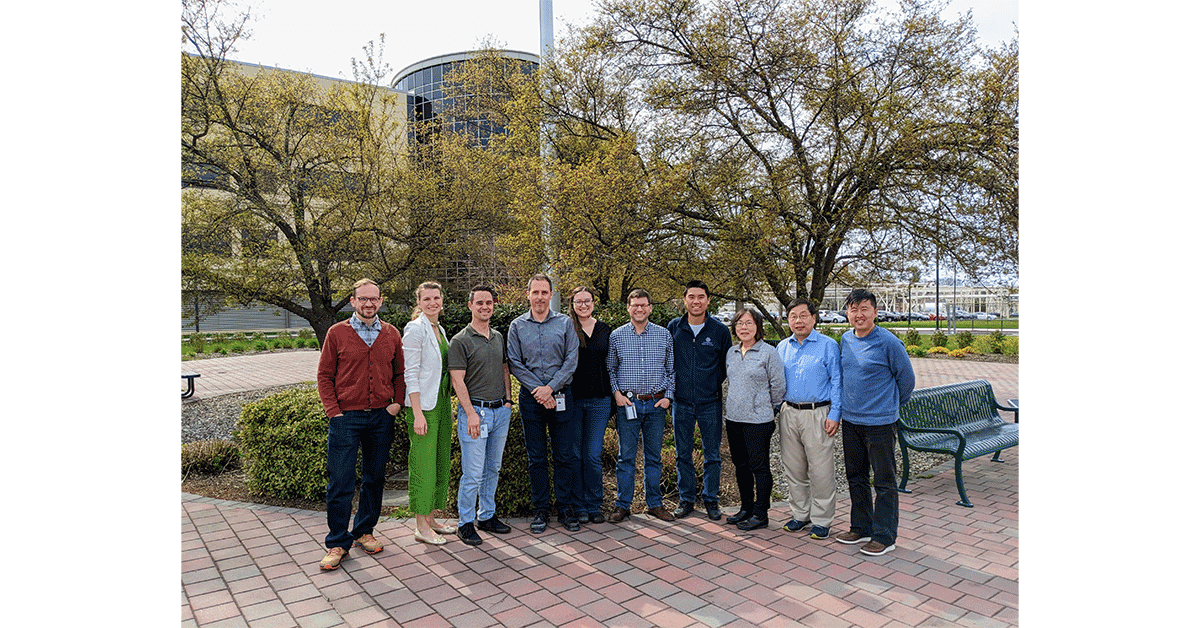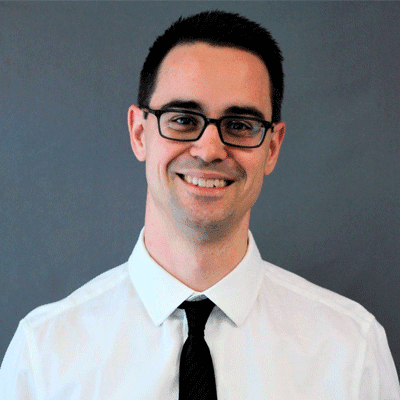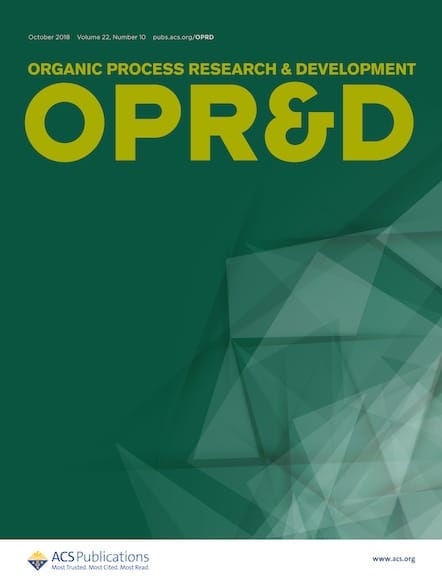Get to know the 2023 recipients, read their winning article, and learn about their plans for building upon their existing research.

Organic Process Research & Development, in partnership with the ACS Division of Organic Chemistry, is proud to announce the inaugural winners of the Organic Process Research & Development Outstanding Publication of the Year Lectureship Award: Jason M. Stevens, Eric M. Simmons, Yichen Tan, Alina Borovika, Junying Fan, Robert V. Forest, Peng Geng, Carlos A. Guerrero, Sha Lou, Dimitri Skliar, Sarah E. Steinhardt, and Neil A. Strotman.

This award honors the research team behind an outstanding article published in an issue of Organic Process Research & Development in the preceding year that demonstrates creativity and impact in the field of process chemistry and related disciplines associated with reaction scale-up. Jason M. Stevens and colleagues at Bristol-Myers Squibb, Janssen Research and Development, and Merck & Co., Inc. are recognized this year for their article, Leveraging High-Throughput Experimentation to Drive Pharmaceutical Route Invention: A Four-Step Commercial Synthesis of Branebrutinib (BMS-986195), which outlines a powerful strategy for rapid identification of highly efficient synthetic routes to prepare active pharmaceutical ingredients.
Jason Stevens, Bristol Myers Squibb

Jason (Jay) Stevens will represent the coauthors and be honored during the 48th National Organic Chemistry Symposium in South Bend, Indiana, July 9 – 13, 2023.
Dr. Stevens is originally from Saratoga Springs, New York, and attended the State University of New York at Oswego. Upon completion of his undergraduate studies, he began his industrial career in 2003 at AMRI Global as a process chemist. In 2005, Dr. Stevens attended the University of North Carolina at Chapel Hill for doctoral studies in the laboratory of Prof. Michael Crimmins, where he completed the total synthesis of psymberin. After completion of his Ph.D., Dr. Stevens moved to the laboratory of Prof. David MacMillan for postdoctoral studies, where he developed a methodology for the enantioselective a-alkenylation of aldehydes through synergistic copper-organocatalysis. In 2012, Dr. Stevens resumed his industrial career in process chemistry within the Chemical Process Development department at Bristol Myers Squibb. He is presently at Bristol Myers Squibb as a member of the Automation and Data Science Team within Chemical Process Development.
Read the interview with Dr. Stevens:
What does this award mean to you?
Receiving this award is great recognition of our chemistry organization at Bristol Myers Squibb (BMS), our fantastic team of process chemists, engineers, analytical scientists, and the team that worked on the development of the commercial manufacturing process for branebrutinib. The Chemical Process Development department at BMS embodies a culture that challenges us to develop innovative chemistry solutions and encourages scientific curiosity to deliver molecules and processes that impact our patients’ lives. This award is a recognition that we are living up to our vision as a department and as a company.
How would you describe your research to someone outside your field of research?
Our mission is to create safe, economical, and sustainable processes to supply high quality active ingredients for the medicines we deliver to patients. We deliver early supplies of our novel therapeutics to support clinical trials and resupply the clinic as the molecule advances through the ongoing trials. Our department also develops the commercial manufacturing processes for our medicines’ active ingredient such that we can deliver increasingly innovative therapies to our patients with foundations of safety, quality, and compliance with government regulations. To do this, we often have to invent new chemistry to improve the manufacturing process as the demand for a therapeutic grows. This is to ensure the patients are supplied and that we are implementing sustainable processes with reduced costs and increased robustness.
What do you think is the biggest challenge currently in your area of research?
A current, yet fun, challenge in chemical process development is the growing complexity of the chemical compounds that we need to deliver for our patients. Our department has done work to quantify the growing complexity of the molecules we work on, yet these increasingly challenging targets continue to require efficient, safe, and robust manufacturing methods to deliver high quality medicines to our patients with speed. Thus, we are continuing to make increasingly difficult molecules with the same constraints we’ve always had. This paradigm of delivering efficient processes for complex targets under tight timelines and efficiency constraints is the focal point of the work that we published.
What is next in your research?
Our department has world-class capabilities in high-throughput experimentation (HTE), which is the use of parallel experimentation coupled with automation to run multi-dimensional, large, arrayed experiments in a rapid and highly efficient manner. Recently, we have fully embraced data science and have begun to leverage the troves of data collected using HTE over the years to inform and enhance our experimental designs. Additionally, we’re enthusiastic about coupling our existing and future automation equipment with artificial intelligence to augment our work in closed-loop systems.
Have there been any highlights in your career to date that you are especially proud of?
I am very proud of the recognition we received for the process development work that led to the commercial synthesis of branebrutinib, and I’m grateful to have worked with such an incredible team. I’m also immensely proud of our work in the area of Bayesian optimization, to develop artificial intelligence for chemical reaction optimization. I began my journey into data science in 2017, and I’m still in awe of the accomplishments that we were able to achieve with our phenomenal collaborators Professor Abigail Doyle (UCLA) and Ryan Adams (Princeton) and the impact that we’ve been able to deliver in such a short amount of time.
What would your advice be to someone just starting out in the field?
I would encourage someone starting out in the field of process development to get a broad experience in the many different areas of expertise. This would allow you to find where your passion is and to grow your network which will foster fruitful collaborations across disciplines. The people that I work with continue to inspire me every day with their creativity and passion for science. The ability to connect with people across functions has generated many exciting projects and has led to an incredibly rewarding career.
